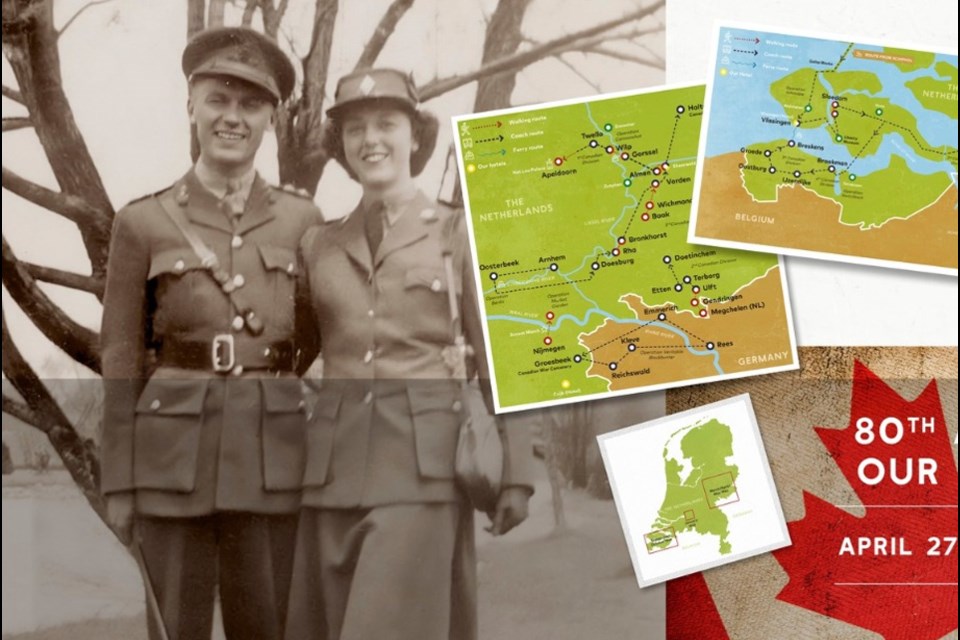MOOSE JAW — Three Moose Jaw-area women are going to Europe to follow the paths their veteran fathers took while helping liberate the continent during the Second World War.
Carole Nelson, from Moose Jaw, Lana Hebert, from Moose Jaw, and Joanne Haig, from Rouleau, are travelling to the Netherlands from April 27 to May 8 to commemorate the 80th anniversary of the Dutch liberation and the end of the Second World War.
They are going with In Our Fathers’ Footsteps, a not-for-profit group that enables the sons, daughters, nieces, nephews and grandchildren of those men who served — and perhaps died — in the Netherlands to better understand their relative’s wartime experience.
The 130 participants will walk along the paths that Canadian troops took through fields, forests and liberated villages and immerse themselves in ceremonies and festivities while staying in a former Canadian field hospital building.
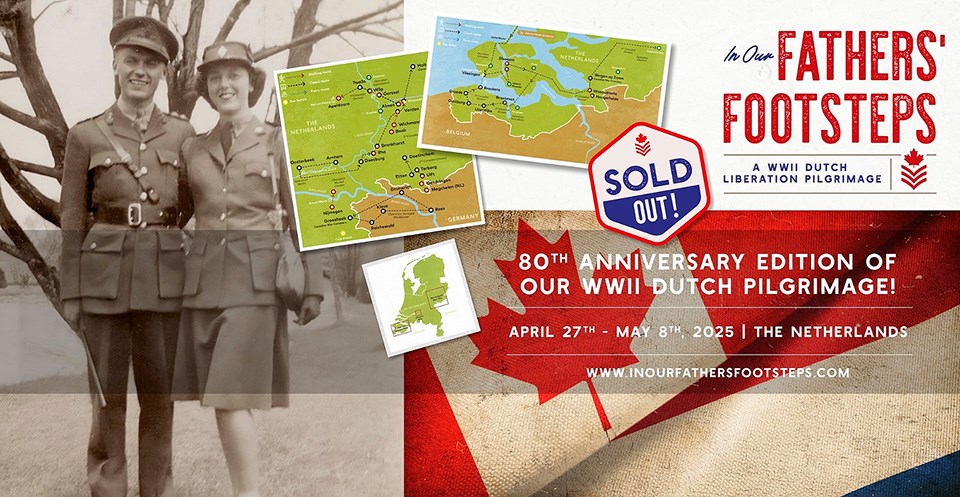
Always on my mind
It was always on Hebert’s mind to retrace the footsteps of her father, John Kenneth (JK) Budge, but she never knew how, she explained.
Budge grew up on a Quebec reserve and, in his early 20s, joined the Algonquin Regiment, which was part of the 10th Infantry Brigade with the 4th Armoured Division.
Fortuitously for Hebert, someone from her community choir said they were going to Holland for the 80th anniversary. The choir member sent Hebert the information and, after reviewing the documents, she decided this was the trip to take.
Hebert noted that her father and Haig’s father, Joseph A. Braconnier, were friends during the Second World War since they served in the same brigade and division. That connection led to the two women meeting 25 years ago and remaining close ever since.
Hebert contacted Haig and asked what she knew about their fathers’ efforts, while she explained that she was taking the trip.
“Well, we both started to cry,” Hebert laughed, her voice breaking. “It’s just incredible to think about that, that 80 years ago, our fathers met, and 80 years later, it’s us going but in peacetime.
“We’re looking forward to the trip.”
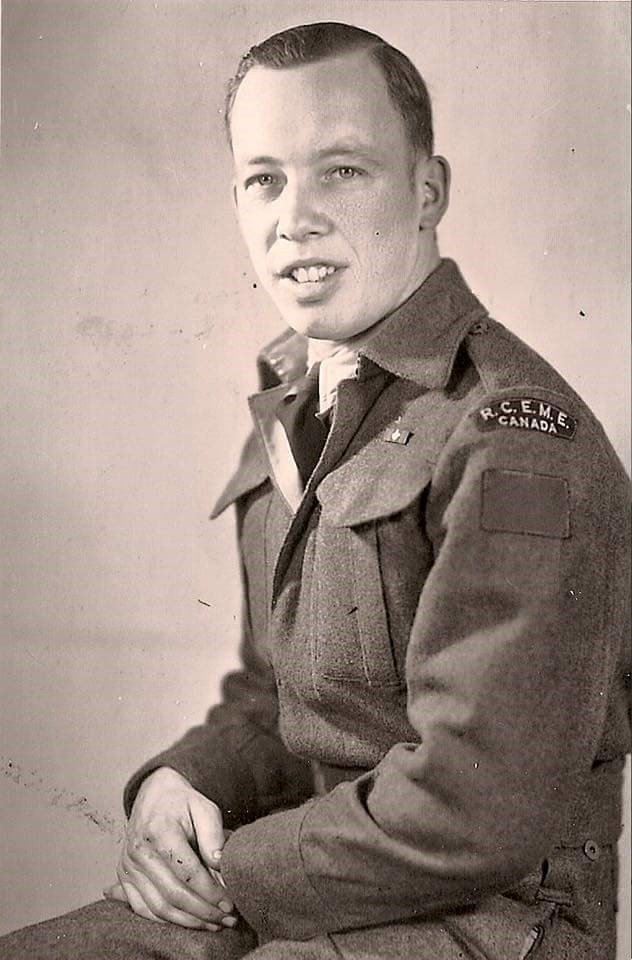
A return to Europe
Haig explained that she travelled with her father to Europe in 1995 for the 50th anniversary and saw the places in France, Belgium and the Netherlands where he fought.
Braconnier was injured in France in 1944 during the Falaise Gap battle. He recovered and, after the war ended in May 1945, he returned home in December 1945.
“This tour will add more dimension (to that first trip),” Haig said.
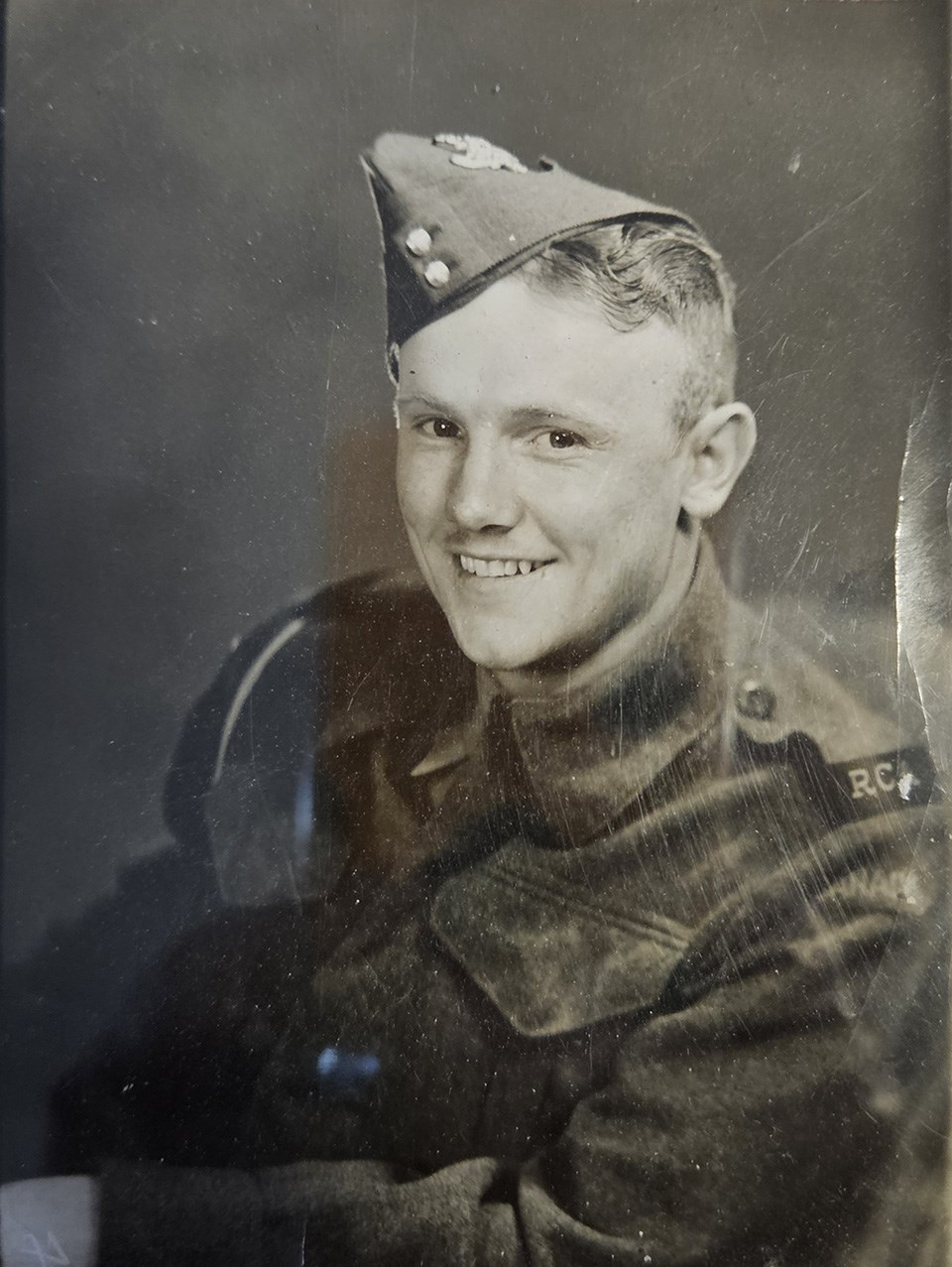
Funny memories
Hebert recalled that her father rarely said anything about his wartime experiences, although he did communicate through stories, poems and songs.
The family sometimes heard funny stories when Budge drank, including the fact that he and Braconnier were rarely promoted because they were usually in trouble. Also, since he spoke fluent Algonquin, he wrote letters home to his mother in that language since the military censors couldn’t read his language.
Tough memories
Meanwhile, Remembrance Day was “very difficult” for Budge, with Hebert saying that after the Nov. 11 ceremonies and parade, while the community had doughnuts and coffee, the veterans locked themselves in the legion’s back room and spent the entire day there.
“They did their own thing and they lived with their own tormented memories, and it was a safe place to do that … ,” Hebert added.
Budge and his wife returned to Europe in 1985 and 1990 for the 40th and 45th anniversaries of the war’s end. Hebert recalled that while her mother admired the beautiful beaches of Normandy, her father “saw something totally different” because “he saw the massacre” from the D-Day invasion.
Budge and Braconnier did not participate in the invasion but landed a day later, with the water and beaches still littered with dead bodies and destroyed equipment.
Good memories
Haig said emotionally that she hopes to acquire many memories from the trip, which she expects it will give her a better understanding of where her dad served. She noted that Braconnier told only her brothers and husband about his experiences but never her.
However, he did tell her about “the good times,” including having a pig roast to celebrate his 21st birthday, and travelling to Paris with friends.
A special home
Hebert and Haig plan to arrive in Amsterdam several days before their trip starts to find the home of a Dutch couple, Joanne and Gerry Aalders, who housed their fathers — they helped celebrate Braconnier’s 21st birthday — in the nearby community of Hilversum.
The Aalders moved to New Zealand in 1974 but visited North America around 1979 to find the 11 soldiers who stayed with them. They found nine men — their pursuit generated some media exposure — and wrote a related book called “And We Found Nine.” The couple also attended Hebert’s wedding years later.
“I just feel that this (trip) is a gift. The timing was perfect,” Hebert said. “Everything just fell into place for me and Joanne … . It will be very emotional.”
Said Haig emotionally, “It’s going to be a good trip.”
Budge died in 2001 at age 79, while Braconnier died in 1998 at age 75.
Rumbling across Europe
Carole Nelson is honouring her father, WTE Finan, who served in the 12th Army Tank Battalion (The Three Rivers (Trois Rivieres) Regiment). He never discussed his experiences since “that was the past and now is the present,” so she is excited to learn more, meet the Dutch people and see the battlefields.
Finan’s unit entered the war in 1943 with the invasion of Sicily, before jumping to mainland Italy, helping liberate Rome — they were considered “D-Day Dodgers” because they missed the Normandy invasion — and continued driving north.
The Canadian returned to England after being wounded — he was literally blown out of his tank — before he was sent to Northwestern Europe in March 1945 to liberate the Netherlands, including Apeldoorn.
Nelson noted that her father returned to Europe for business trips but never for anniversary commemorations. He died in 2005 at age 80.
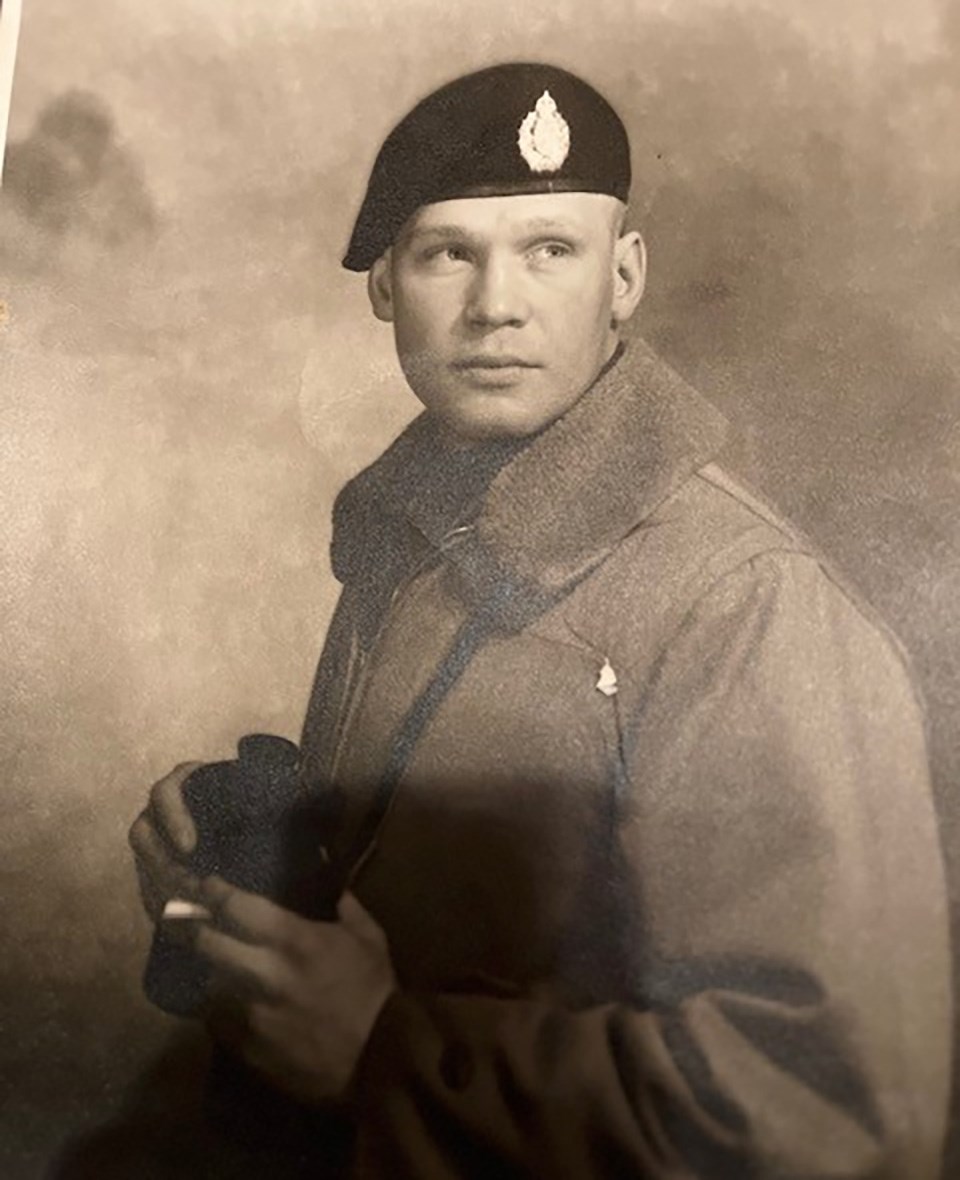
Editor's note: This article has been updated to reflect that Budge wrote letters to his mother — not his wife — during the war. We regret the error.
